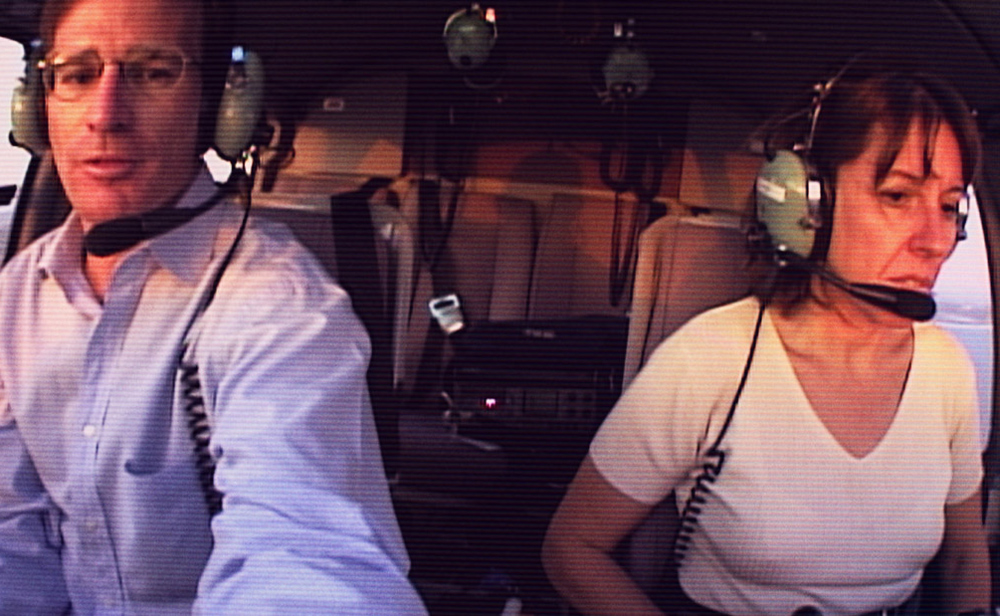For a generation of Angelenos, Bob Tur was the voice of God, delivering breaking news from the skies across radio and television for the likes of KNX and KCOP 13, respectively, making him omnipresent. It was a bold gambit on his part to buy the helicopter that would allow him such a perch during the 1980s, and a somewhat reckless one as you learn in Matt Yoka’s new film “Whirlybird” when he squirreled away money to afford it that could’ve been put to use in supporting his growing family, yet it paid off in spades when networks became thirsty for car chases or coverage of fires that would draw viewers in real time, and with his wife Marika, who served as his intrepid camera operator, Tur built an empire by remaining independent, providing his services to the top bidder and becoming the best in the business.
Tur is no longer Bob when introduced in the present day in “Whirlybird,” but rather Zoey, living far away from the hustle and bustle of Los Angeles, and as the film unfolds, you have to think that the only way such a candid and unvarnished personal profile got off the ground is that its subject thinks they’re reflecting on another lifetime, though Yoka makes a brilliant case for both eras in Tur’s life being connected. The former helicopter pilot and reporter isn’t only bracingly honest about the time before she came out as a trans woman, but opens up the vault of the L.A. News Service archives to allow Yoka access to raw footage that reveals the the aggressive and often abusive behavior around the edges of what went on air that made Tur a natural for getting exclusives in an oversaturated major market such as Los Angeles, innovating by pushing the limits of what he and collaborators Marika and Larry Welk were capable of, yet subconsciously rebelling against her masculinity by leaning into it until the point that it would break.
As Tur relates this fascinating personal epiphany, “Whirlybird” is bound to leave one about television news gathering as well, as both Zoey and Marika consider throughout the years how they’ve become desensitized to extreme situations and their role in sensationalizing them to attract viewers. The film suggests that their initial attraction to each other wasn’t necessarily what the other had to offer, but their shared love for the thrill of the chase, and with Bob relentlessly looking for ways to get an edge on the competition, there is no shortage of broadcast quality footage from cameras that the newscaster tested out to illustrate their lives away from the job as much as on it.
This yields remarkable individual moments such as when Marika interrogates Bob on vacation in Hawaii, questioning whether he could exist anywhere but Los Angeles where he thrives on the chaos that he fears is corrupting him, and the distance the two put between themselves and their children with their intense focus on their work is conveyed with a striking single image of roaming above their daughter Katy’s soccer game, thinking they’re being cool parents when in reality they could feel any further away. Collectively, however, “Whirlybird” is an even greater powerhouse, bringing out all of the easily overlooked intersections of the Turs’ professional and personal lives in a story that’s as sprawling as the city its set in and while its subjects have their feet planted firmly on the ground these days, “Whirlybird” earns its place in the heavens.
“Whirlybird” will screen at the Sundance Film Festival on January 28th at 9 pm at the Park Avenue Theatre in Park City, January 30th at 9 am at the Library Center Theatre in Park City, January 31st at the Redstone Cinema 7 in Park City and February 1st at 3:30 pm at the Rose Wagner Center.




